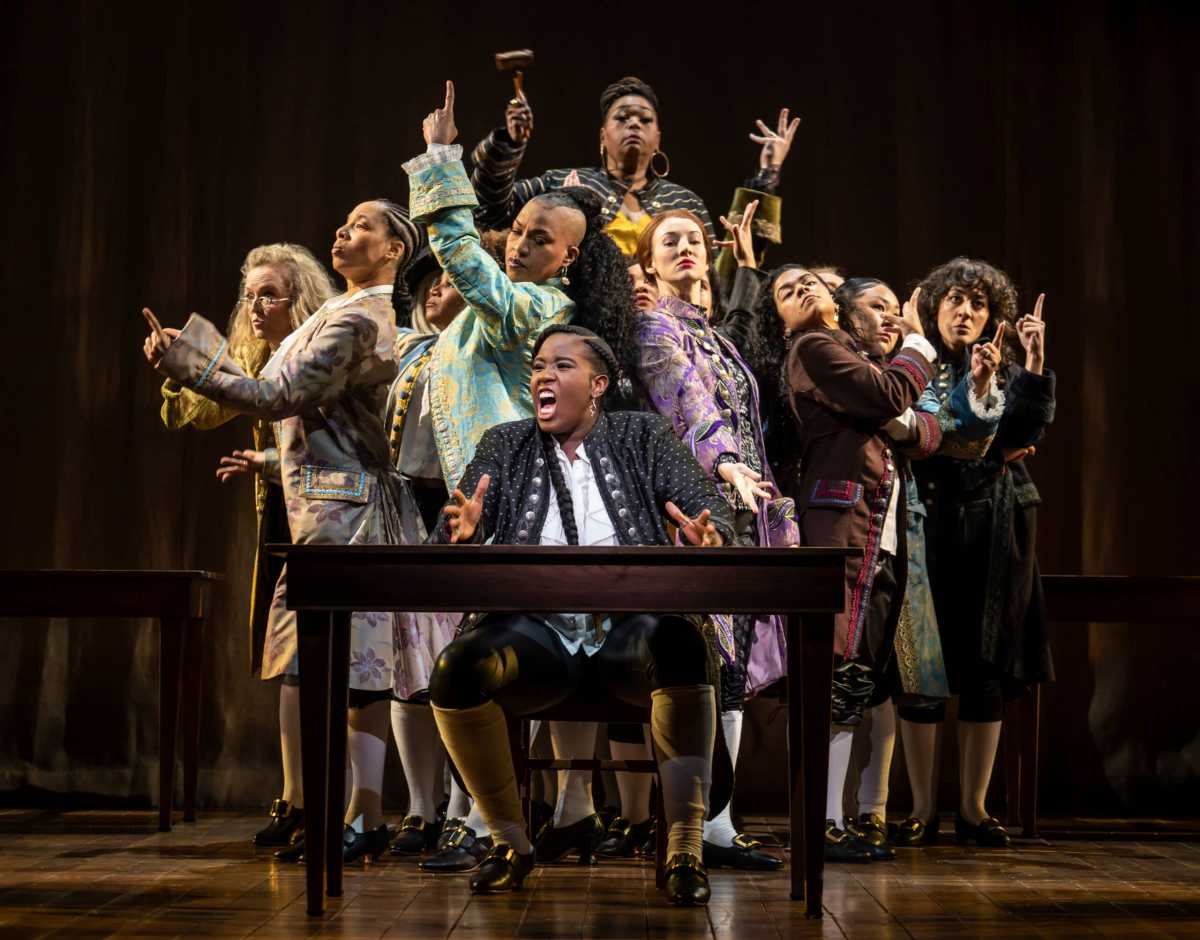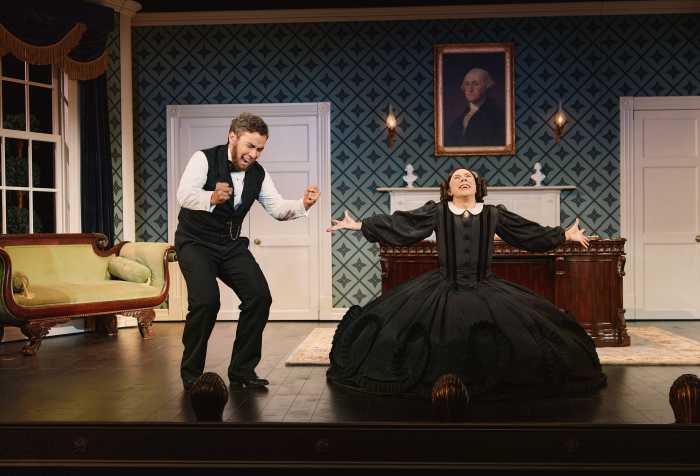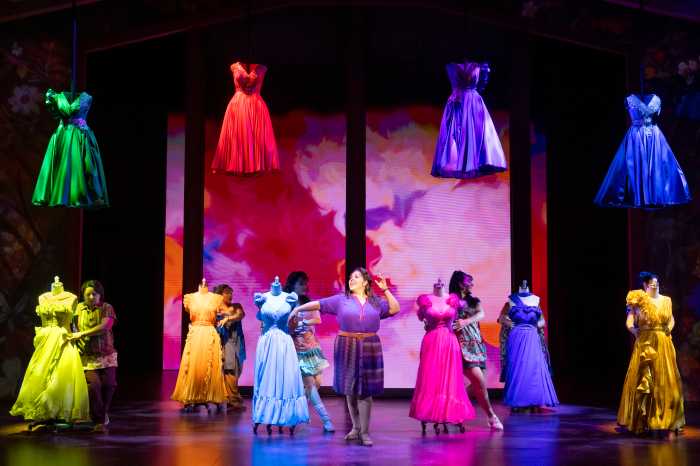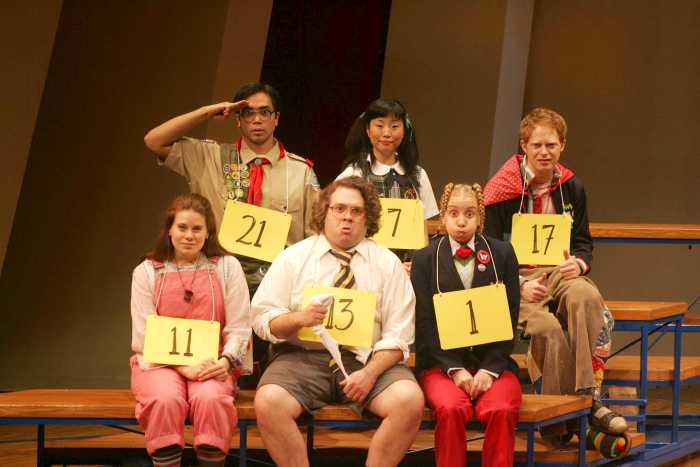In an ideal world, the Roundabout Theatre Company’s heavy-handed, self-aware, gender-reversed Broadway revival of the classic 1969 musical “1776” would be presented in repertory with a straightforward production of “1776,” especially since the current revival was created in response to, and in dialogue with, the original musical.
Twenty-five years ago, the Roundabout produced a first-rate traditional-style revival of “1776” that went on to receive a commercial transfer. I happened to see that production, at the age of 14, and “1776” immediately became one of my favorite musicals. I even went on to play John Adams in a theater camp production.
The impulse to revisit and reconsider “1776” comes as no surprise in the wake of “Hamilton” and ongoing concerns over diversity and inclusivity. In 2016, City Center Encores! revived “1776” with color-blind casting and contemporary attire. However, the new Broadway revival, directed by Jeffrey L. Page (who also choreographs) and Diane Paulus, is about 100 times more aggressive and freewheeling in its approach.
First, the cast of the revival includes “multiple representations of race, ethnicity, and gender,” and is comprised of performers who “identify as female, transgender, and nonbinary.” By comparison, the characters in “1776,” at least as originally written, and all Caucasian and (except for Abigail Adams and Martha Jefferson) all men.
Second, Sherman Edwards’ tuneful score has been reengineered to not just accommodate female voices but also sound more contemporary, with R&B, gospel, country, jazz, and hard rock.
Third, Page and Paulus have forcefully thrust the musical and the historical era it depicts into a harsh spotlight, constantly highlighting and questioning the lack of representation of women and minorities. They have staged it with relentless theatricality in order to add, at various times, critical distance, humor, ensemble movement, and an ominous tone.
The original production famously ended with a stunning recreation of John Trumbull’s painting of the signing of the Declaration of Independence. In the revival, the painting receives a suspicious glance in the very beginning before the cast members proceed to retell the history using their own voices and bodies. Likewise, the ending is not a patriotic victory but a desperate cry for help from the unrepresented.
That being said, the original script has not been drastically altered, other than cutting a few lines and adding in Abigail Adams’ famous “Remember the Ladies” letter.
I admire the considerable thought and enterprise that went into creating this production, while still finding to be overwhelmingly problematic and frustrating, especially in the over-the-top manner that many songs have been reconceived. It is full of provocative images and questionable choices that are worthy of extended analysis and debate.
The performances are wildly uneven in tone, with standouts that include Carolee Carmello’s icy John Dickinson, Patrena Murray’s low-key Benjamin Franklin, and Crystal Lucas-Perry’s pugnacious and vulnerable John Adams.
Interestingly, Elizabeth A. Davis, who plays Thomas Jefferson, is visibly pregnant, but that is not an issue in a production such as this that totally eschews naturalism. One could even argue that it plays into the theme of giving birth to a new nation.
All things considered, it probably would have been a far better use of time, money, and talent to create a new musical about American history that reflects a contemporary viewpoint than to try revise “1776” into becoming a different musical. Take, for example, “Suffs,” an all-female musical recently presented at the Public Theater about the movement for women’s voting rights. Or, of course, “Hamilton.”
American Airlines Theatre, 227 W. 42nd St., roundabouttheatre.org. Through Jan. 8.
Read more: Explore Cobble Hill’s Top Dining and Shopping Spots































